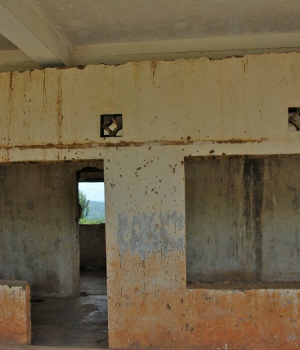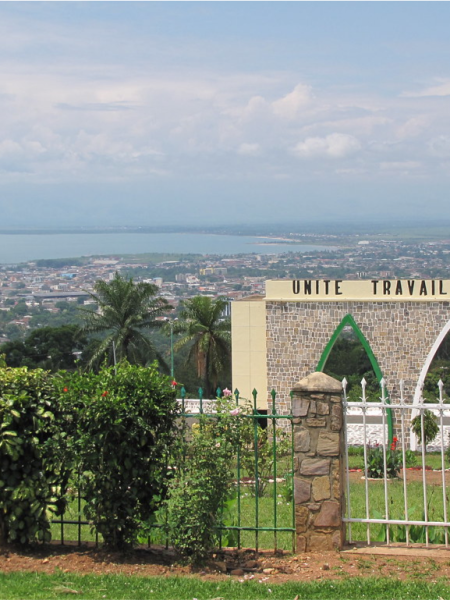Free Methodist Church General Development
Project for Church Leaders Pension Fund
The Burundi Free Methodist Church implemented a Church Leaders Pension Fund program from 2016 to 2025 to ensure retired church leaders have a secure income. Here's how they aimed to achieve this:
Reorganizing the program: They planned to set clear and regulations to ensure the program runs smoothly
Increasing retirement funds: They aimed to raise additional funds besides member contributions to support retired leaders.
Training program managers: Equipping program managers with grant writing and fundraising skills to secure more funds.
Monitoring and evaluation: Regularly assessing the program's effectiveness to make sure it meets its goals of financially supporting retired church leaders.




Project for Deacons' and Pastors' Wellbeing Self-Care
The Burundi Free Methodist Church ran a self-sufficiency program for Pastors from 2016 to 2025. The program aimed to improve their financial wee-being by equipping them with income generating skills. Here are the key points:
Focus on economic empowerment: The program trained pastors in various skills like modern farming, animal husbandry, small businesses, and crafts.
Promoting self-reliance: The program trained pastors earning their own income through the acquired skills, fostering self-sufficiency.
Culturally relevant approach: The church developed program materials and initiatives considering the local context to ensure effectiveness.
Implementation and evaluation: A coordinator collaborated with pastors to implement income-generating activities and monitored the program's success through evaluation.
Project for Christians' Microfinance Banking
The Burundi Free Methodist Church implemented a Microfinance Banking program from 2016 to 2025 to empower church members financially. Here's how they did it:
Established a framework: The church set up rules and regulations to ensure the program functioned smoothly.
Mobilized participation: They encouraged church leaders and members to participate in the program.
Trained program managers: They equipped program managers with the skills to develop a microfinance program relevant to the local context.
Collaborative implementation: They ensured all stakeholders (church leaders, members, and program managers) worked together to run the program
Monitored and evaluated: They tracked the program's effectiveness to see if it met its financial empowerment goals.




Project for Developing and Caring for Health Facilities
The Burundi Free Methodist Church undertook a healthcare development program from 2016 to 2025 with these goals:
Upgrading Hospitals: Expanding and improving services at kibuye and Van Norman hospitals to make them leading healthcare facilities in Burundi.
Strengthening Health Centers: Developing Muyebe, Nkondo, Burenza, Rutunga, and other health centers to become top-tier facilities.
Healthcare Mutuality: Establishing a mutual health insurance program for interested pastors, church members, and the wider community.
Mobilizing Medical Professionals: Bringing together FMC medical practitioners to dvelop relevant healthcare initiatives
Contextualized Programs: Creating programs and educational materials tailored to the local context
Collaborative Implementation: Working alongside church leadership to implement the programs
Monitoring and Evaluation: Regularly assessing the program's effectiveness in achieving its healthcare goals.
Projects For Developing Resources to Sustain the Ministry
The Burundi Free Methodist Church implemented a program from 2016 to 2025 to find sustainable funding for the Church's activities. Here's what they did:
Brainstorming income generation: They convened church leaders from various sectors to identify and develop income-generating projects.
Strategic planning: They aimed to create relevant and sustainable projects with proper management plans.
Project implementation: They collaborated with project managers to put these plans into action.
Monitoring and evaluation: They tracked the program's effectiveness to ensure it met the financial sustainability goals of the Church.


Project for Developing and Caring for Church Infrastructure
The Burundi Free Methodist Church had a major infrastructure development program from 2015 to 2025. Here's a breakdown of their goals:
Enhanced Leadership Connection: Building a liaison Office in Gitega to improve communication and accessibility for church leaders and members.
Centralized Headquarters: Constructing a new headquarters for the BFMC General Conference, including office space and a printing press.
Leadership Development Center: Building a dedicated center with conference rooms, lodging, dining facilities, and a modern library to support leadership development.
Church Building Support: Providing financial assistance to complete the roofs of at least for churches each year after members finish building the walls.




Project for Training Material Production (Printing Press)
The Burundi Free Methodist Church planned a project to establish a printing press from 2015 to 2025. The project involved several steps:
Needs Assessment: They would first evaluate the church's need for a printing press.
Project Development: Following the needs assessment, they would develop a detailed plan for the printing press.
Policy Development: They would create policies to govern the operations of the printing press.
Fundraising and Implementation: They would secure funding and then initiate the construction or acquisition of the printing press.
Management and Evaluation: Finally, they would establish a system to oversee the project, including monitoring progress, evaluating its effectiveness, and providing recommendations and reports.
Burundi Free Methodist Church
Burundi Free Methodist Church is part of the global Methodist movement with over 1.5million members. They focus on a holistic ministry that integrates faith with all aspects of life, including worship, personal choices, career, family, and character.
